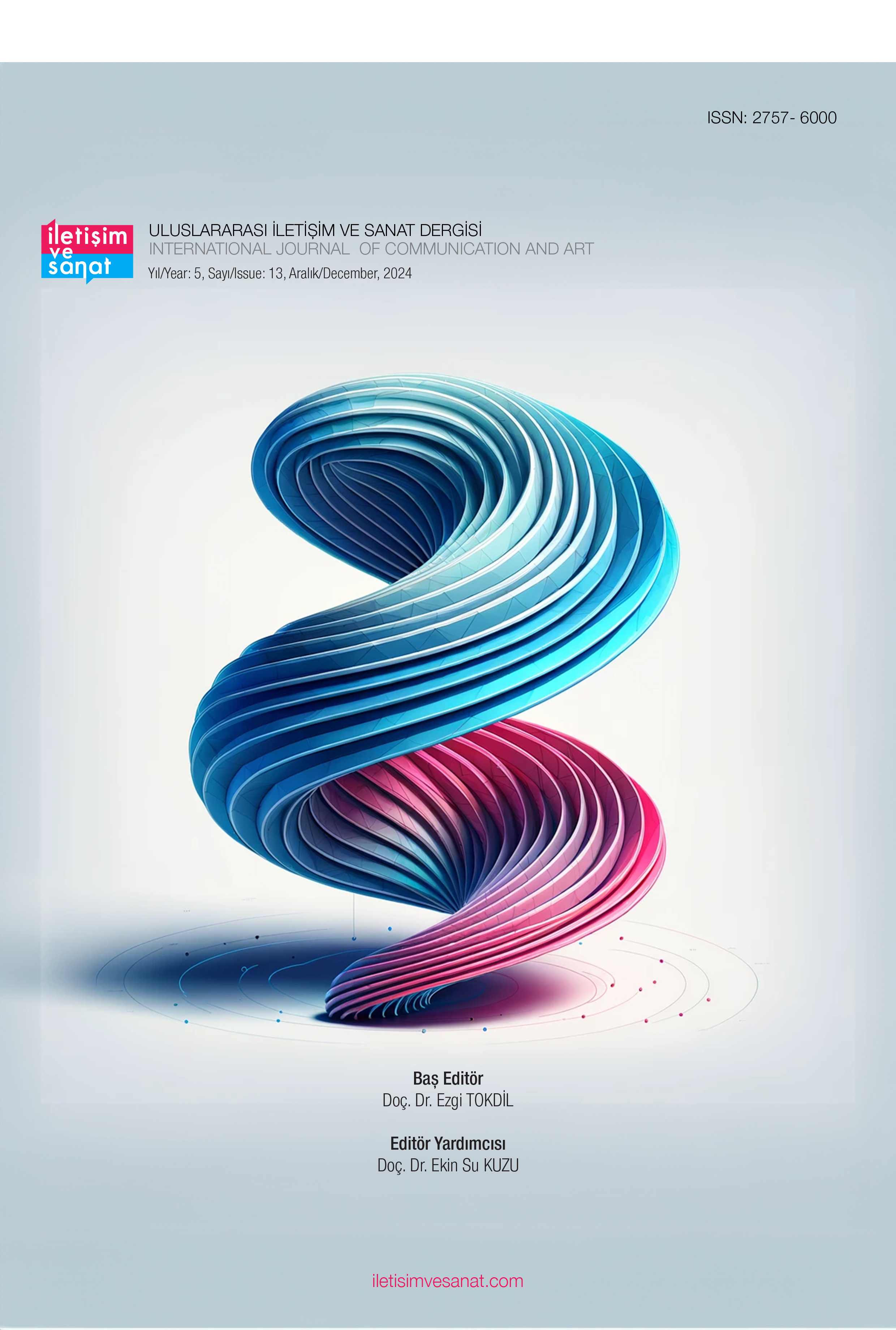Author :
Abstract
Sadece profesyonellerin tecimsel anlamda kullanabildiği yapay zeka teknolojisinin bir sohbet robotu formunda tüm kullanıcılara hitap eder hale gelmesi teknolojinin gelişiminde önemli bir dönüm noktası olmuştur. İnternet mecrasındaki verileri yapay sinir ağlarıyla tıpkı bir insan gibi yorumlayarak akılcı cevaplar veren yapay zeka uygulamaları bilginin kapılarını herkese aralamıştır. Özgün, akılcı ve doğruya en yakın bilginin herkesin ulaşabileceği kadar basit ve görece masrafsız olması her ne kadar yüzeysel olarak olumlanacak bir durum olarak görünse de bazı sorunları da beraberinde getirmiştir.
Yapay zekanın sihirli dünyası insanları hiç fikir sahibi olmadıkları alanlarda dahi eşsiz bilgilerle donatırken, bir takım meslek gruplarını da yakın gelecekte yok olma tehdidiyle baş başa bırakmıştır. Yapay zekanın özellikle de metin üretimi konusundaki başarısı ortaya konulması haftalar bazen aylar süren makale, tez gibi bilimsel çalışmaların yapay zekaya hazırlatılabileceği fikrini de beraberinde getirmiştir. Dolayısıyla yapay zekayı bilimsel çıktılar verme noktasında sınamanın, yapay zekanın bir bilim insanı gibi davranma kabiliyetinin gözlemlenmesinin bilimsel açıdan önemli bir gereklilik olduğu düşünülmüştür.
Sosyal bilimler değişken yapısı gereği bilimsel bir çalışma üretmek adına görece en zor alanlardan biridir. Yapay zekayı bu zorlu alanda sınamanın isabetli bir tercih olacağı açıktır. Fazlaca alt dalların bulunduğu sosyal bilimler alanı, bu çalışmada iletişim bilimleri ile sınırlandırılmıştır. Betimsel analiz yöntemiyle ortaya konulan çalışma kapsamında yapay zekaya iletişim bilimleri alanında bilimsel içerik üretmesi prompt edilmiş, çıktıları bilimsel perspektifle analiz edilerek çalışmanın varsayımı sınanmıştır.
Keywords
Abstract
The fact that artificial intelligence technology, which can only be used commercially by professionals, has become available to all users in the form of a chatbot has been an important turning point in the development of technology. Artificial intelligence applications that interpret data on the internet with artificial neural networks just like a human being and provide rational answers have opened the doors of knowledge to everyone. Although it may seem superficially positive that original, rational and closest to the truth information is so simple and relatively inexpensive that everyone can access it, it has also brought some problems with it.
While the magical world of artificial intelligence equips people with unique information even in areas they have no idea about, it has also left some professional groups face to face with the threat of extinction in the near future. The success of artificial intelligence, especially in text production, has brought with it the idea that scientific studies such as articles and theses, which take weeks and sometimes months to produce, can be prepared by artificial intelligence. Therefore, it has been thought that testing artificial intelligence in terms of producing scientific outputs and observing the ability of artificial intelligence to act like a scientist is an important scientific necessity.
Social sciences are one of the most difficult fields to produce a scientific study due to their variable nature. It is clear that testing artificial intelligence in this difficult field would be an accurate choice. The field of social sciences, which has many sub-branches, is limited to communication sciences in this study. Within the scope of the study presented with the descriptive analysis method, artificial intelligence was prompted to produce scientific content in the field of communication sciences, and the assumption of the study was tested by analyzing its outputs with a scientific perspective.





